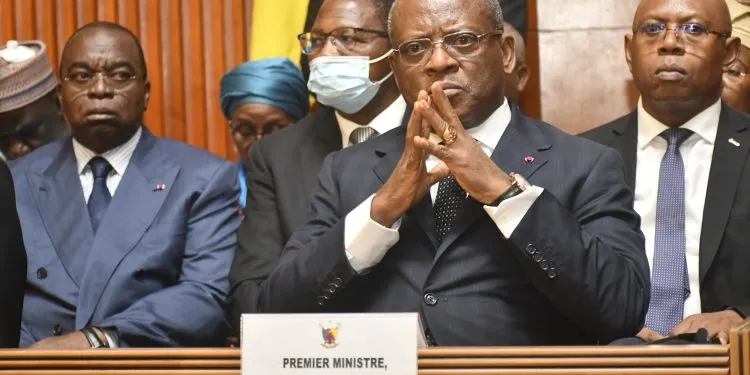The government of Cameroon has tabled its proposed economic, financial, social, and cultural program for 2025, presenting a budget of FCFA 7,317.7 billion.
This reflects a modest increase of FCFA 39.8 billion compared to the 2024 budget.
While addressing the National Assembly on December 1, Prime Minister, Joseph Dion Nguté, described the budget as a roadmap for sustainable development and economic resilience.
Cameroon Budget Breakdown
The 2025 budget, comprising a General Budget of FCFA 7,250.8 billion and Special Allocation Accounts totaling FCFA 66.9 billion, reflects a balanced approach to public spending.
“This budget demonstrates our commitment to strengthening domestic resource mobilization and supporting key sectors that will drive growth and improve the lives of our people,” PM Dion Nguté noted.
Internal revenues and donations will potentially rise by 6 percent, reaching FCFA 5,548.1 billion, while oil revenue will fall by FCFA 66.8 billion.
The drop owes to global price fluctuations and exchange rate disparities.
Growth and Inflation Projections in Cameroon
The government projects a 4.1 percent economic growth rate in 2025, an improvement from 3.8 percent in 2024, driven largely by a 4.3 percent growth in the non-oil sector.
Inflation will potentially drop to 4 percent, continuing a downward trend but remaining above the CEMAC threshold of 3 percent.
Hon. Njume Peter, a member of the Finance and Budget Committee, praised the growth prospects while raising concerns about inflation.
“The projected economic growth is commendable, but inflation above the CEMAC threshold must be addressed if we want ordinary Cameroonians to feel the impact of these gains,” he said.
Decentralization Efforts Highlighted
A significant portion of the budget will tackle decentralization, with nearly FCFA 80 billion mobilized in the first half of 2024 to accelerate this process.
The investment has led to the inauguration of 10 city halls, bringing government services closer to the population.
“Decentralization remains a cornerstone of our strategy. These investments demonstrate our dedication to empowering local governments and fostering regional development,” the PM emphasized.
Hon. Gladys Etombi, MP for Fako East constituency, lauded the government’s focus on decentralization.
“For the first time, we are seeing tangible results from decentralization efforts. Our communities now have the infrastructure to support local governance and development.”
Challenges in Oil Revenue
The decline in oil revenue continues to pose a challenge for the country’s economy.
The potential drop of FCFA 66.8 billion is linked to declining global oil prices and unfavorable currency exchange rates.
“Our reliance on oil has been a double-edged sword. While diversification efforts are promising, more needs to be done to cushion the economy against such shocks,” Hon. Njume Peter reflected on the implications of this trend.
Strategic Vision for Growth
The 2025 budget aims to align with Cameroon’s development priorities.
The focus will be on: Economic diversification through investments in agriculture, manufacturing, and technology.
Infrastructure development, including energy, transport, and digital networks.
Social investments in education, healthcare, and poverty alleviation.
Prime Minister Dion Nguté concluded his presentation with a call for unity and collaboration.
“This budget is not just a financial document; it is a statement of our collective vision for a prosperous Cameroon. Together, we can achieve these goals and transform our nation,” he said.
The 2025 budget reflects a deliberate effort to balance growth, sustainability, and inclusivity.
While challenges such as inflation and declining oil revenue remain, the government’s focus on decentralization and diversification offers hope for a more resilient economy.



